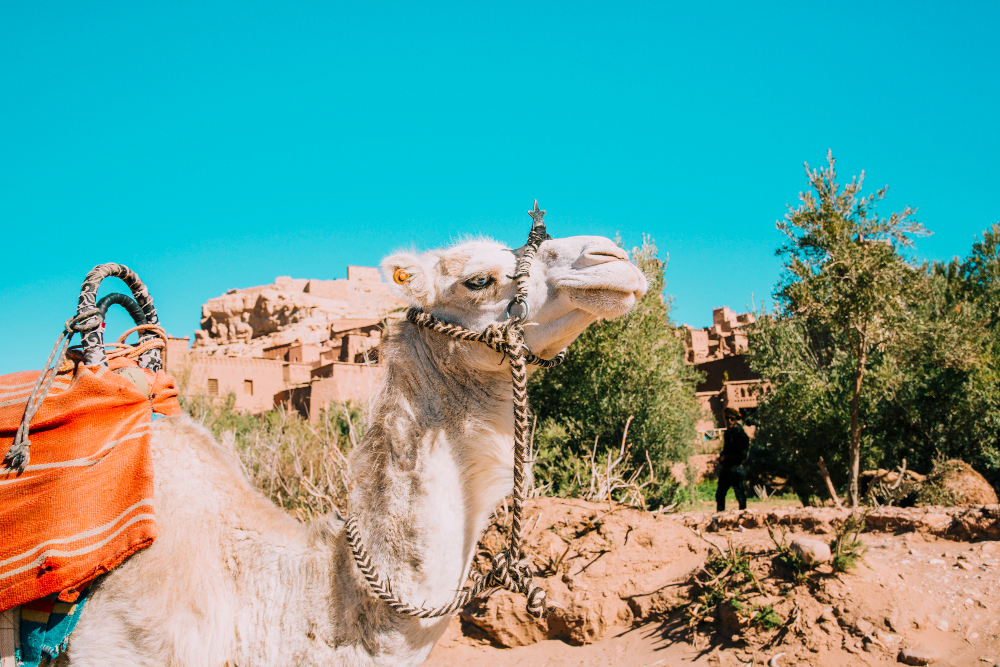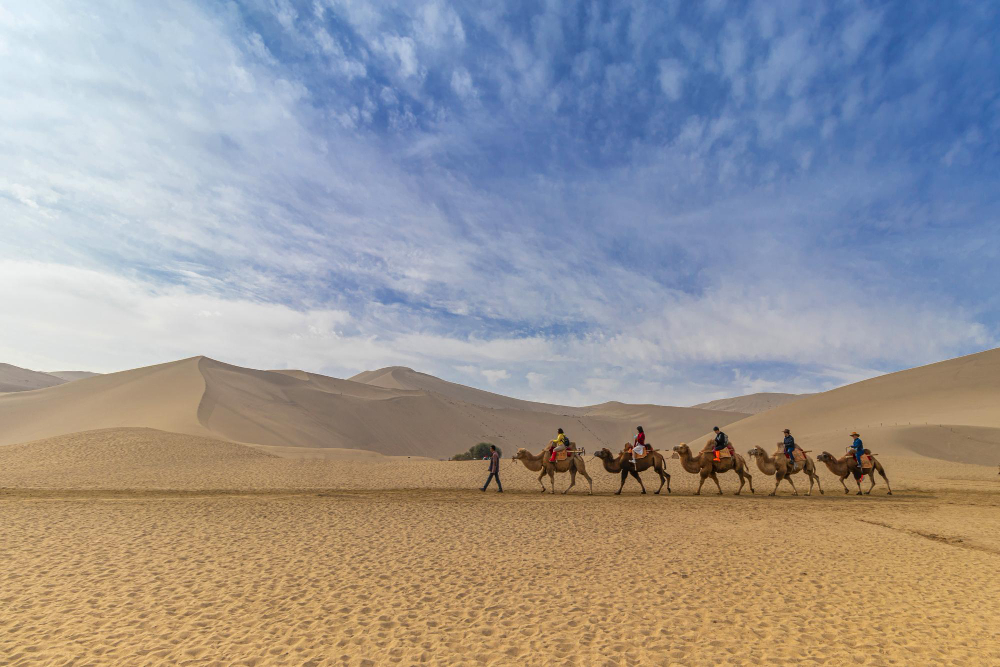Iraq, a country with a deep historical significance and an intricate cultural landscape, has long been shrouded in mystery for many travelers. For years, images of conflict and war dominated media coverage, leading to understandable concerns regarding the safety of visiting this ancient land. However, the reality today is more nuanced. As Iraq continues to rebuild and recover from years of instability, the question arises: Is it safe to travel to Iraq?
This comprehensive guide will provide insights into travel to Iraq, covering the latest security updates, the best regions to visit, cultural considerations, and tips for tourists considering a journey to this fascinating and historically rich country.
Iraq’s Rich Cultural and Historical Heritage
Iraq is often referred to as the cradle of civilization. It is home to the ancient lands of Mesopotamia, the birthplace of some of the earliest human civilizations. Over millennia, this region has been home to iconic cultures and empires, including the Sumerians, Akkadians, Babylonians, and Assyrians. The country’s archaeological treasures and ancient ruins are vast, making Iraq a dream destination for those interested in history, archaeology, and ancient cultures.
While travel to Iraq might be daunting for some due to concerns over safety, the rich cultural and historical heritage of the country offers a unique experience for those who choose to explore it. Whether you are visiting the ruins of Babylon, the historical city of Ur, or the holy sites of Najaf and Karbala, Iraq offers an unparalleled glimpse into the origins of human civilization.
Is it Safe to Travel to Iraq in 2025?
The security situation in Iraq remains dynamic, and the country’s safety for tourists largely depends on the region you plan to visit. Travel to Iraq in 2025 is safer than it has been in previous years, but travelers still need to remain vigilant and well-prepared. Here’s a breakdown of the safety levels in various parts of Iraq:
1. The Kurdistan Region: A Safe Haven for Tourists
The Kurdistan Region in northern Iraq is widely regarded as the safest part of the country for tourists. This autonomous region, which includes cities like Erbil, Sulaymaniyah, and Dohuk, has established its security forces and infrastructure, making it much more stable compared to the rest of Iraq. The Kurdistan Region is a popular destination for those wishing to travel to Iraq without the risks associated with other parts of the country.
Erbil, the capital of the Kurdistan Region, is home to ancient sites such as the Erbil Citadel, a UNESCO World Heritage Site that dates back thousands of years. Tourists can also explore the region’s beautiful landscapes, which include the mountainous areas of the Hawraman Valley and Amedi. The region is known for its hospitality, and visitors will find a welcoming atmosphere, with relatively modern amenities.
2. Baghdad: A City of Contrasts
Baghdad, the capital of Iraq, is another key destination for those wishing to experience the country’s culture and history. The city has long been a center of Arab culture and politics, with notable landmarks such as the National Museum of Iraq, which houses priceless artifacts from the country’s ancient past.
However, Baghdad is still a city recovering from years of conflict. While the security situation has improved significantly since the defeat of ISIS, there are still areas within the city that remain vulnerable to sporadic violence and unrest. Tourists planning to travel to Iraq and visit Baghdad should remain vigilant, stay updated on security advisories, and avoid areas where demonstrations or tensions are likely to occur.
3. Southern Iraq: A Region of Pilgrimages
Southern Iraq, home to religious sites of immense importance to Shia Muslims, is an important destination for religious tourism. Cities like Karbala and Najaf attract millions of pilgrims each year, especially during the religious observances of Ashura and Arbaeen. These cities are relatively safe for visitors, especially pilgrims, as local authorities take extensive measures to ensure security during religious events.
For those interested in religious tourism, travel to Iraq to visit these holy sites is often seen as both a spiritual journey and an opportunity to experience the country’s deep-rooted cultural traditions.
4. Western Iraq: High-Risk Areas
Western Iraq, including the cities of Mosul and Anbar, remains a high-risk region for tourists. These areas have been severely affected by conflict and the presence of ISIS, and while recovery efforts have been underway, they are still considered dangerous for general tourists.
Mosul, once the epicenter of ISIS activity, has made significant strides in rebuilding, but it remains unstable in certain parts. Visitors are advised to avoid Mosul and the surrounding areas unless they are part of a specialized tour with the necessary security measures.

Key Tips for Traveling to Iraq
When considering travel to Iraq, it’s essential to take a few precautions and be mindful of local conditions. Here are some tips to help ensure a safe and rewarding trip:
1. Stay Informed and Up-to-Date
The security situation in Iraq can change rapidly. Therefore, it’s important to stay updated on the latest travel advisories from trusted sources, such as your government’s foreign office or international organizations. These advisories provide real-time information on the safety of specific regions and can help you plan your trip accordingly.
2. Travel with a Local Guide
Hiring a local guide can greatly enhance your travel experience and increase your safety. Local guides are familiar with the terrain, local customs, and security risks, making them invaluable for navigating Iraq. They can also help you avoid potential trouble spots and ensure that you stay in secure areas.
3. Respect Local Customs and Traditions
Iraq is a country with deep religious and cultural roots, so it’s important to respect local traditions. For instance, dress modestly, especially in conservative areas, and be mindful of the cultural significance of religious sites. Learning a few basic Arabic phrases can also go a long way in making connections with locals and showing respect for their culture.
4. Invest in Comprehensive Travel Insurance
Traveling to Iraq, especially to more volatile areas, requires comprehensive travel insurance that covers medical emergencies, trip cancellations, and evacuation services. Make sure your insurance policy includes coverage for high-risk regions to ensure that you’re fully protected in the event of an emergency.
5. Avoid High-Risk Areas
Some parts of Iraq, particularly in the west and north, are still recovering from years of conflict. It’s important to research the current safety conditions of specific areas before deciding to travel there. Western Iraq, including Mosul and Anbar, remains a high-risk zone and should be avoided for leisure travel.
The Best Time to Travel to Iraq
The best time to travel to Iraq is during the cooler months, typically from October to April. Summer temperatures can be extreme, often exceeding 40°C (104°F), which can make travel uncomfortable, especially in regions with limited air conditioning or cooling options. During the cooler months, you can explore Iraq’s historic sites and landscapes with more comfort.
Conclusion
Travel to Iraq offers a unique opportunity to explore one of the world’s most historically significant countries. From the ancient ruins of Babylon and Ur to the holy shrines in Karbala and Najaf, Iraq provides a fascinating journey into the past. While certain regions of Iraq remain high-risk, areas such as the Kurdistan Region and southern Iraq offer relatively safe environments for tourists.
For those planning to visit, it’s essential to stay informed, take the necessary precautions, and respect local customs and traditions. Travel to Iraq may not be for everyone, but for those who choose to embark on this journey, the rewards are great, offering a unique glimpse into the history, culture, and resilience of the Iraqi people.To learn more about travel to Iraq and other destinations, visit worldgateiq .
FAQs
1. Is Iraq safe to visit in 2025?
In 2025, parts of Iraq are safe for tourists, especially the Kurdistan Region and southern cities like Karbala and Najaf. However, western Iraq and certain parts of Baghdad remain high-risk areas.
2. What are the safest cities to visit in Iraq?
The safest cities to visit in Iraq are Erbil, Sulaymaniyah, Karbala, and Najaf. These areas are stable and well-suited for tourism.
3. Can I visit Baghdad as a tourist?
While Baghdad has seen improvements in security, it still requires caution. Visitors should stay updated on local conditions and avoid areas with high levels of unrest.
4. What should I know before traveling to Iraq?
Before traveling to Iraq, stay informed about security conditions, respect local customs, travel with a guide, and ensure you have comprehensive travel insurance.
5. Are there any areas in Iraq that should be avoided by tourists?
Yes, areas in western Iraq, such as Mosul and Anbar, remain high-risk due to the aftermath of conflict. These regions should be avoided unless traveling with professional security.

